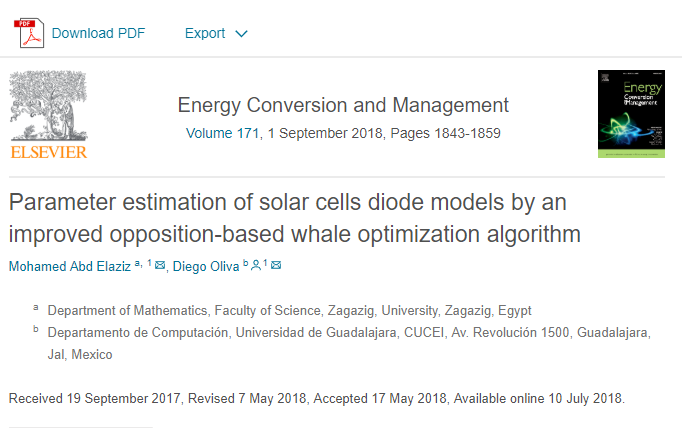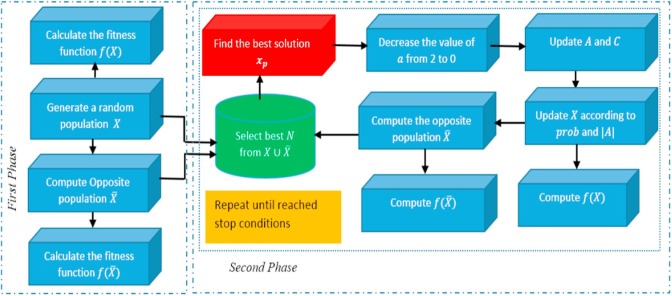Parameter estimation of solar cells diode models by an improved opposition-based whale optimization algorithm
Solar cells are considered as a clean source of energy, and their application includes industrial and domestic users. Most of the algorithms used to design solar cells are tested (and used) only for domestic implementations. However, it is necessary to have accurate mechanisms for solar cell design that can be used in both industrial and domestic energy systems. To achieve this goal, this article introduces an improved version of the whale optimization Algorithm that uses the opposition-based learning to enhance the exploration of the search space. This algorithm is applied to estimate the parameters of solar cells using three different diode models. Such models are the single diode model, the double diode model and the three diode model, each of them has different internal parameters that must be accurately estimated in order to have a good performance of the solar cells. The inclusion of the three diode model is due it represents a more accurate representation of the solar cells behavior in industrial applications. For experiments and comparisons, there are used similar approaches and datasets from solar cells and photovoltaic modules. Moreover, the proposed method has also been tested over different benchmark optimization functions to verify its exploration capabilities. The experiments and comparisons support the performance of the proposed approach in complex optimization problems.

